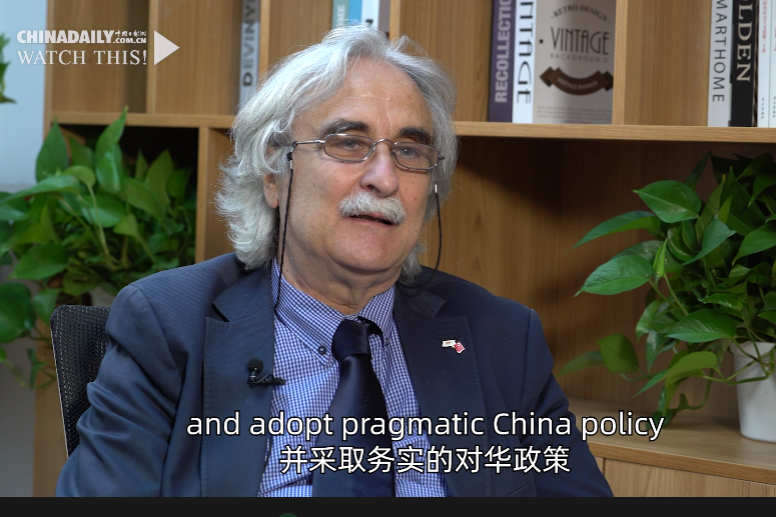Arab leaders seek Israel-Palestine cease-fire amid regional disruption concerns
By Jan Yumul in Hong Kong | chinadaily.com.cn | Updated: 2023-10-27 20:09

In their latest demand for an immediate and sustainable cease-fire in the Israel-Palestine conflict, Arab leaders have been playing a crucial role in the region by balancing their economic diversification ambitions and containing tensions from breaking into a war, analysts said.
On Oct 25, nineteen days into the flare-up between Hamas and Israel on Oct 7, Egypt, Jordan, the United Arab Emirates, Bahrain, Saudi Arabia, Oman, Qatar, Kuwait and Morocco, have called on the United Nations Security Council, to obligate the warring parties in the Gaza Strip to an immediate and sustainable cease-fire, and restraint.
The call came in a joint press statement by the foreign ministers, according to Xinhua News Agency. The Arab foreign ministers also underscored the importance of immediately releasing hostages, emphasizing the role of the International Committee of the Red Cross.
Since Oct 7, Arab leaders have held inter-regional meetings, including meetings with other international leaders and humanitarian organizations, resulting in the release of some hostages held by Hamas under humanitarian grounds – the latest on Oct 23 was largely credited to Qatari-Egyptian mediation.
Dire life-saving aid finally started to roll into Gaza through the Rafah border which the Palestinian enclave shares with Egypt on Oct 21.
Also, widely reported was that Saudi Arabia had paused its normalization talks with Israel while the United Arab Emirates, which made a deal with Israel through the Abraham accords in 2020, had earlier condemned the loss of civilian lives from both the Israel and Palestine sides.
"It is important to acknowledge the immense pressure faced by Arab leaders from both domestic and international stakeholders. Arab states are often placed in a tight spot, as they must navigate their own interests while simultaneously addressing the concerns of their citizens who are deeply invested in the Palestinian cause," Nagapushpa Devendra, a West Asia analyst and research scholar at the University of Erfurt in Germany, told China Daily.
Rasha Al Joundy, senior researcher at the Dubai Public Policy Research Centre in the United Arab Emirates, said that the countries in the region are concerned that a vicious military escalation could spread to neighboring countries and have an impact on the livelihood and economic diversification plans "because it would transform the conflict into a war, and presume the region high risk for foreign investment".
"Most importantly, a major escalation could have a long-lasting political not just military impact on the Palestinian cause, which the Arab leaders want to avert, such as ethnic massacres, or forcibly relocating the Palestinians towards Egypt, giving a scene worse than 1948. I believe this is the core of diplomatic efforts nowadays in the region," Al Joundy told China Daily.
At the Cairo Summit for Peace on Oct 21, which was called for by Egyptian President Abdel-Fattah al-Sisi, some 30 Arab and Western leaders, called for a ceasefire. They also pushed for a two-state solution.
The meeting was held just days after Jordan cancelled a summit it was scheduled to host in Amman on Oct 17 with United States President Joe Biden.
Jordan's Foreign Minister Ayman Safadi has said that the meeting would be held at a time when the parties could agree to end the "war and the massacres against Palestinians", blaming Israel with its military campaign for pushing the region to "the brink of the abyss", according to a report by Al Jazeera.
Anis Khayati, an economics professor at the College of Business Administration at the University of Bahrain, thinks Israel wants to exploit the opportunity to achieve new goals.
"In light of the prolongation of the crisis, the new normalizers with Israel find themselves in an extremely awkward position, in light of their failure to find a justification for their rapprochement with Israel in front of the public opinion in their countries," said Khayati.
jan@chinadailyapac.com























